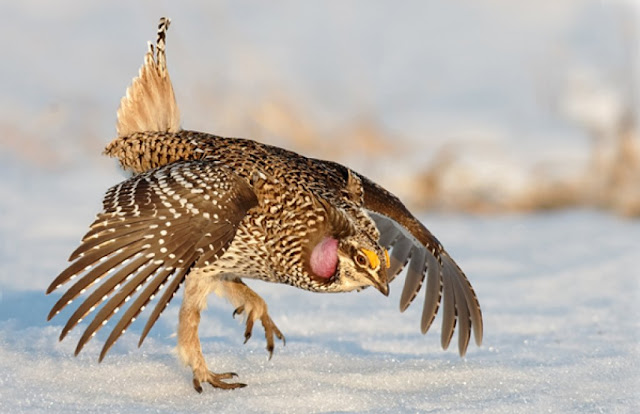This week in birds - #535
A roundup of the week's news of birds and the environment:
A favorite winter visitor - the Chipping Sparrow.Depiction of Australopithecus afarensis.
*~*~*~*
Seven states rely on the shrinking Colorado River for water. Since they seem unable to come to an agreement for sharing the water, it seems that the federal government may have to impose such an agreement.
*~*~*~*
Prescribed burns, a long-time Indigenous practice, can help to restore depleted lands.
*~*~*~*
Inuit communities are calling for mandatory measures to reduce underwater noise pollution which they blame for the disappearance of narwhals and ringed seals from areas where they used to hunt them.
*~*~*~*
Why do the newts cross the road and why are there volunteers out there helping them to do it?
*~*~*~*
When scientists tagged a southern elephant seal in 2011, they could little have guessed the important information that would be provided by that tag.
*~*~*~*
This is the American Bird Conservancy's Bird of the Week, the Sharp-tailed Grouse and it is one tough customer!




Good morning, Dorothy, and thank you for the roundup. I am delighted to see the picture of the Sea Otters at the end of the post. They are creatures that have given me great pleasure on several visits to the west coast and I rejoice in the fact that they have survived near extinction due to exploitation for their fur. Now if only we could resolve to stop polluting their home.....
ReplyDeleteThey are indeed marvelous creatures and it always gladdens my heart to see them.
DeleteI'm surprised that the rain in the West is not enough to pull the region out of drought conditions.
ReplyDeleteKeeping Alaska's Tongass National Forest free of roads and logging is something I wish would happen more often.
Thank you for sharing news from nature! I look forward to reading your summary each week.
And thank you for reading and taking the time to comment each week, Deb.
DeleteSince Arizona has experienced drought for twenty years that I know of, it comes as no surprise to me that this wet winter isn't enough to pull us out of it. I would imagine that the major thing that's keeping Colorado River water states (like Arizona) from coming to any sort of agreement is MONEY. They want to continue to encourage tourism and people moving in and on and on and on--- but what rabbits are they going to pull out of their hats when the water runs out? No one wants to believe that the drought will never end when that scenario is something that should have been planned for long ago.
ReplyDeleteWell stated, Cathy. I think you are spot on.
Delete